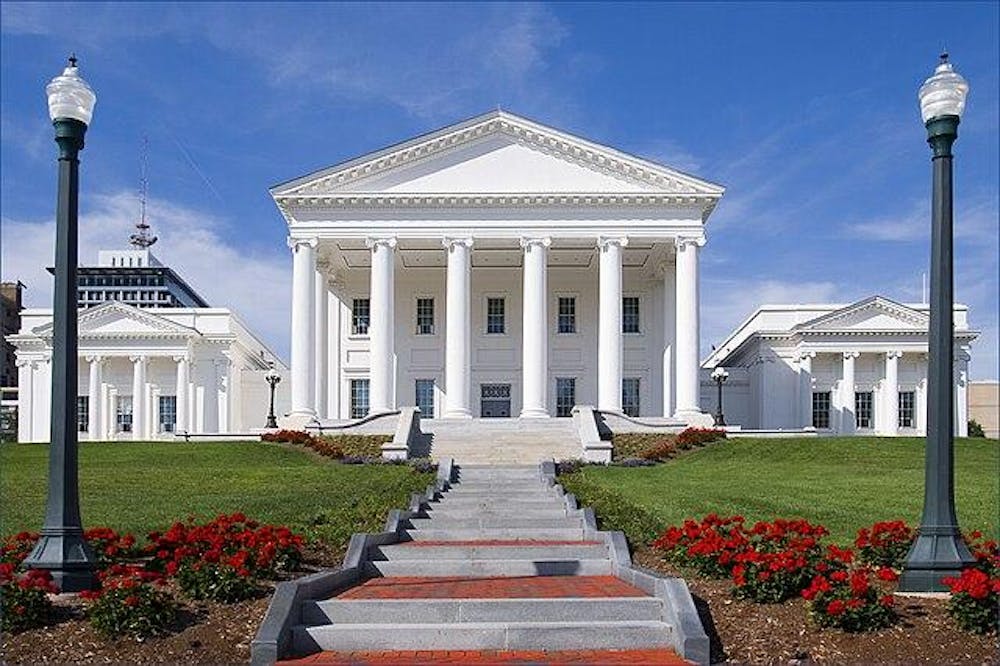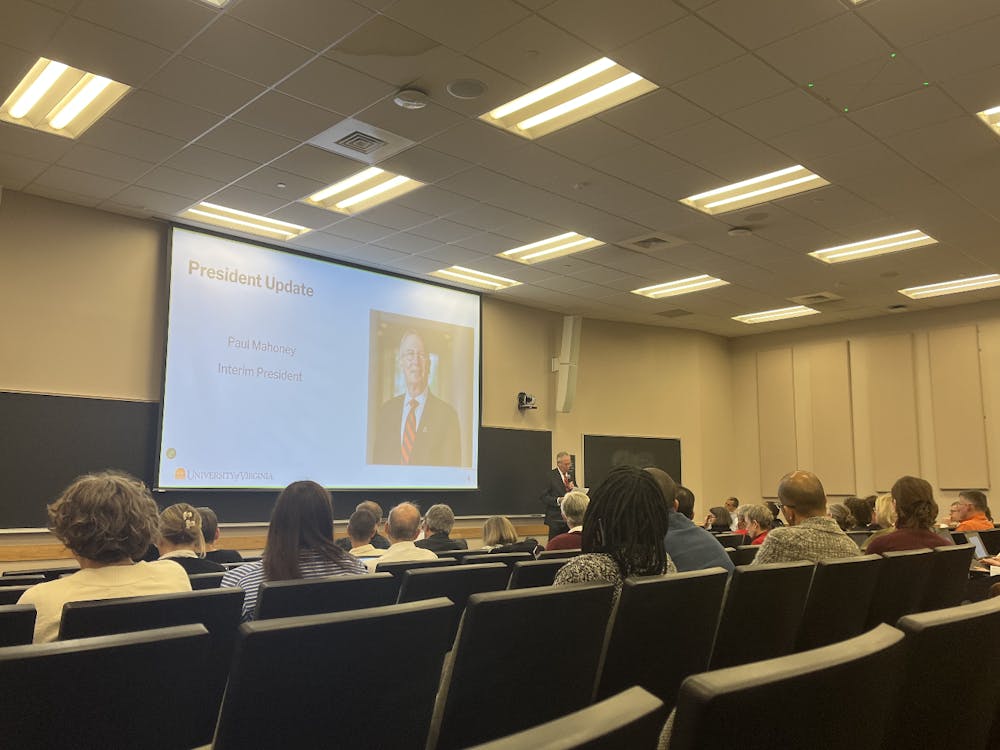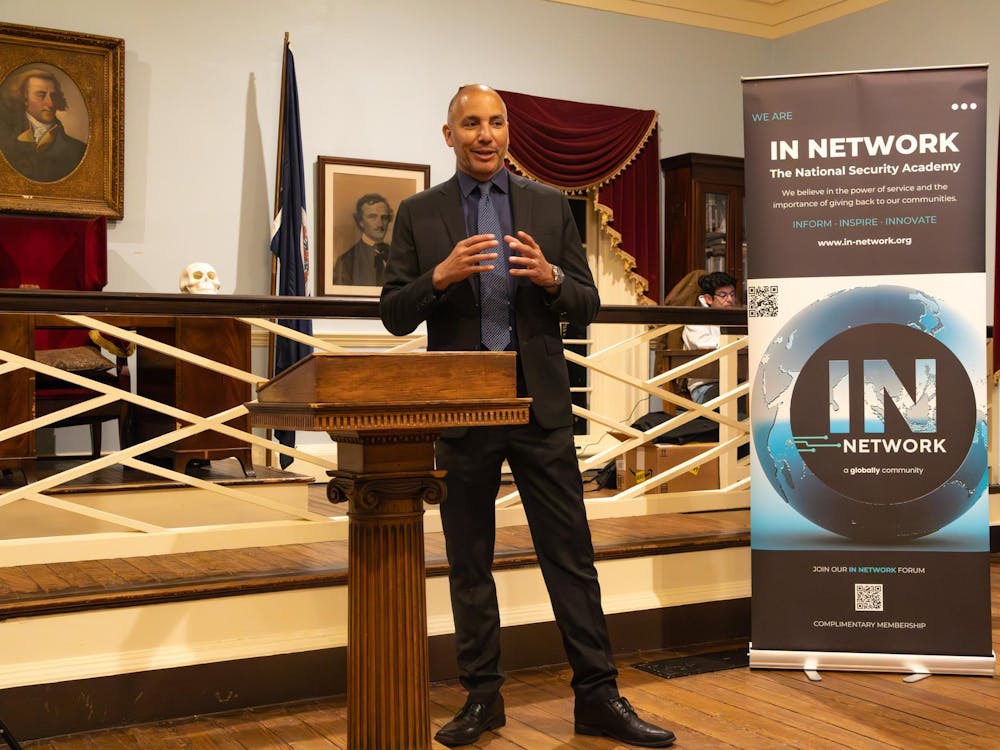After a months-long legal battle, the Supreme Court of Virginia upheld a lower court decision in favor of Senate Democrats in a case regarding gubernatorial appointments to university governing boards across the state. This affirms the authority of Virginia Senate Democrats, who have blocked over 20 of Gov. Glenn Youngkin’s appointments to university governing boards since June.
A Fairfax County judge ruled temporarily in late July that Senate Democrats did have the authority to block Youngkin’s appointments to the governing boards at three schools — U.Va., George Mason University and the Virginia Military Institute. Attorney General Jason Miyares’ office filed an appeal on behalf of the Commonwealth in August, and the Supreme Court refused the appeal of the injunction Monday.
“Having reviewed the record along with the parties' written and oral arguments, the Court refuses the petition for review filed in this case,” the decision reads.
A spokesperson for the attorney general’s office did not respond to a request for comment on the decision. University Spokesperson Bethanie Glover said the University did not have a comment at this time.
In a statement to The Cavalier Daily, Youngkin said he was “disappointed” with the decision, saying it is important for the next administration to “stand for the Constitution.”
“The Supreme Court of Virginia has refused to decide whether or not one committee of one chamber in the General Assembly can unilaterally … remove incredibly qualified public servants who have been serving Virginia’s higher education institutions admirably for months,” Youngkin said.
Because the decision in Fairfax County was only a temporary injunction, the refusal Monday does not end the case entirely, but rather allows the case to resume playing out in the trial court.
“A refusal of a petition for review under Code § 8.01-626 does not prejudice the petitioners' right of appeal following a final judgment. Nor does it limit the parties' or the lower court's opportunity to more fully develop the record,” the decision reads.
There is some indication on how the lower court will rule, however, as Judge Jonathan D. Frieden wrote in his injunction in July that the Democrats — the plaintiffs — were highly likely to prevail in the end.
“Plaintiffs have demonstrated their entitlement to a preliminary injunction prohibiting Defendants from recognizing the rejected appointees as members of their respective university governing boards,” Frieden wrote.
In the original case, Democrats argued that they had the authority to block gubernatorial appointees outside of regular session, because they were in an ongoing special session. They then voted down the nominees in the Senate Privileges and Elections Committee. The executive branch had asked the universities not to comply with the ruling initially, as the GOP argued the full General Assembly needed to vote on the nominees. For that reason, the Democrats sued the rectors of the boards.
The decision Monday means that vacancies will remain unfilled on university governing boards — there are five vacancies on the University’s Board of Visitors, and the GMU Board of Visitors has so many vacancies that it can not reach a quorum to meet.
Youngkin has not made any new appointments to the boards at the three schools since the Senate Privileges and Elections Committee blocked another round of his appointments in August. This leaves the door open for Gov.-elect Abigail Spanberger to fill the vacancies on the boards when she takes office in January.
The governor and governor-elect have dueled over their authority in recent days, with Spanberger writing to the University’s Board to halt the naming of a new president until she takes office and can fill the vacancies on the Board. Youngkin sent a letter to Spanberger, saying she lacked the authority to do so, as she is not yet the governor.
Asked for comment on the matter, Senate Majority Leader Scott Surovell, D-Fairfax, directed The Cavalier Daily to a statement posted to X, where he said Virginia still has a rule of law.
“MAGA rules don’t work in Virginia where we still have a rule of law that Youngkin and Miyares have to follow,” Surovell wrote.







